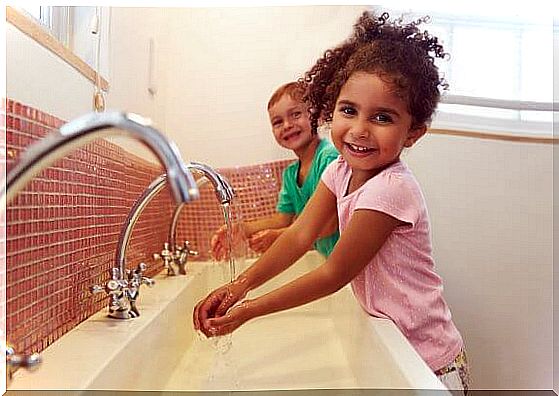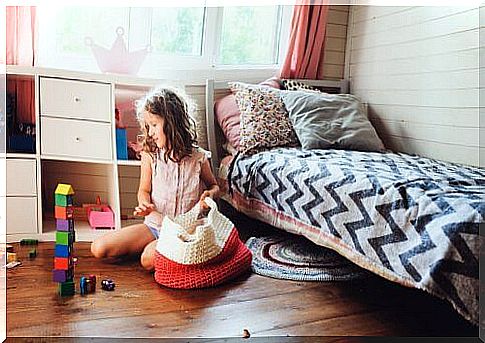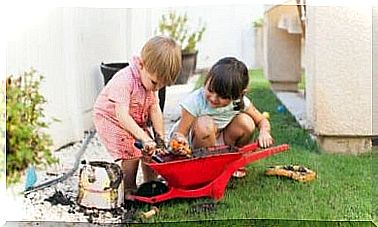What Is The Effect Of Routines On Children?

Doing the same things every day can be tedious, tiring, and even lead to long-term levels of stress and depression. However, by encouraging routines for children, we create habits that, over time, will form the basis of values such as discipline and responsibility.
The creation of habits is fundamental for the integral development of children’s personality, as well as for the strengthening of their emotions. Although routines can be seen as limiting, the truth is that they are necessary for children because of their valuable contributions. We will explain some of them later.
Routines are created with the purpose of promoting personal gain and are strictly adhered to, and it is difficult to change them once they are established.
Some examples are combing your hair before leaving the house or brushing your teeth after every meal. But good habits don’t always come naturally. They carry guidelines that we should instill in our children from an early age.
When to start creating routines for children?
To start promoting the routines for children it is not necessary to wait a long time. This can be done practically from birth or even before they reach their first year of life.
If we allow too much time to pass, children will have a greater use of reason and will possibly have already acquired bad habits that will be difficult to change.
Establishing meal, rest and hygiene schedules for your children from an early age will help them to get used to new routines in the future, as their daily activities increase.
It will also make it much easier for them to adapt when they start attending day care centers and schools or participating in extracurricular activities.

From an early age, children copy what they see: both good things and bad things, as they do not yet have the ability to differentiate one thing from another. That’s why, if you want your child to learn habits and routines, the best way to teach them is to set an example with your daily practices.
Importance of habits and routines for children
Establishing schedules and respecting daily routines guarantees a large number of benefits, among which the following stand out:
- Encourage organizational habits.
- Increase and favor the development of autonomy.
- Generate security and stability.
- Favor an atmosphere of tranquility.
- Turn the environment into a predictable place and therefore reduce levels of uncertainty and anxiety.
The first thing we should establish for our children are feeding, hygiene and sleep schedules. It is advisable that they are respected daily, according to the family’s schedule.
Next, it is necessary to add spaces for studies and play in the schedule, while trying to ensure that the established order is followed correctly.
Habits and routines and their relationship to learning
The habit, by itself, is already a learning experience that implies the establishment of self-regulation and discipline behaviors that favor integration into the educational system. In classrooms, especially in preschool, getting children to follow routines is one of the goals of teaching.
Likewise, creating routines and schedules favors understanding the sequences of time and space, as well as helping to focus attention on specific tasks.
It also increases the ability to plan, as working based on daily goals and objectives allows the child to start and finish an activity efficiently, leaving nothing unfinished.
Benefits of routines for children
Having a pre-established routine with positive habits and counting on the help of all family members for their formation through example will allow children to know how to act and, at the same time, they will also be able to:
- Anticipate what is to come and control anxiety.
- Easily adapt to different situations.
- Follow an organized pace of life, which will be useful in adulthood.
- Learn that there are rules and limits to be respected.

Remember that routines for children require patience, but also example and family work so that, in no time, their educational purpose is distorted, causing them to become bad habits.
Your children have a multitude of skills and talents to explore, and the more positive habits they create, the greater their chances of success in what they set out to do.







